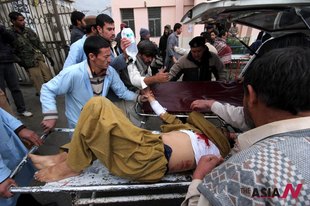The Taliban, an Islamic extremist armed group, has ruled Afghanistan (hereinafter referred to as Afghanistan) twice (1996-2001 and 2021-present). The Taliban’s first term in power in Afghanistan was marred by tyranny that suppressed all freedoms. The Taliban, who are entering their second term in power in 2021, say they are different from before, but the West’s gaze towards them is not much different from the past. Which is the real face of the Taliban: what the Taliban say they are or what the West’s observers say about them?
In December 2023, Lee Shin-seok, a reporter specializing in reporting conflict areas for ‘The AsiaN’; who faced Afghanistan under the Taliban with his body and mind, tells the story of the Taliban and Afghanistan as they are. -editor
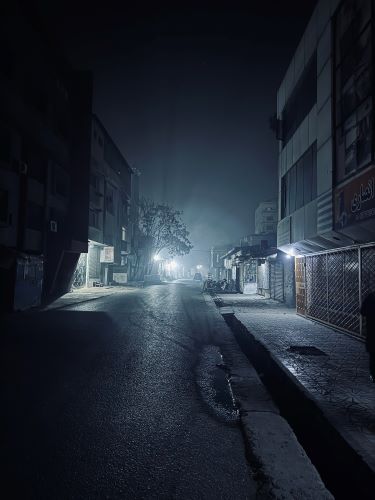
By Lee Shin-seok
Conflict zone reporter Journey through The Wrong Side of the Tracks
SEOUL: Afghanistan under the Taliban controlled not only the entry of foreigners but also their movement within the country. Even if you entered the country with a visa, you had to obtain separate permission from the authorities to stay in or move around the city. The Ministry of Culture and Information is in charge of these procedures.
Although it combines completely different fields of ‘culture’ and ‘information’, it mainly deals with the work of the ‘Intelligence Department’. I visited the Ministry of Culture and Information in Kandahar and Kabul, and the screening process in the capital city of Kabul was even more stringent.
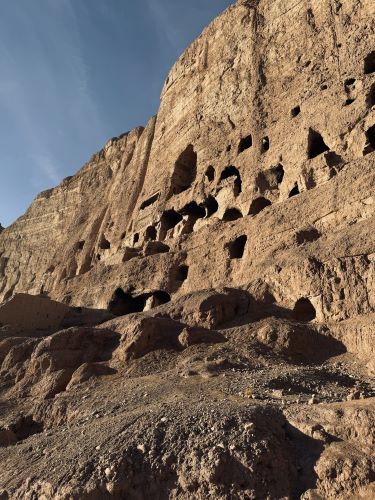
This happened when the author was nearing the end of his journey, having crossed from Pakistan to Afghanistan and visited various places in Kandahar and Kabul. I went to the Ministry of Culture and Information in Kabul to get permission to travel to Bamyan, my main destination. The atmosphere at the Ministry of Information office, which I visited following the guidance of the staff, was particularly rough that day. The office staff in charge and the Taliban watching them thoroughly inspected my cell phone and asked questions. Up to this point, the process I had been through for a while was bearable. However, one of them started making personal attacks by asking about the details of my late father and grandfather. The words were no different from an examination or interrogation. We wasted a lot of time going back and forth with meaningless questions, but they ultimately did not give us permission to move.
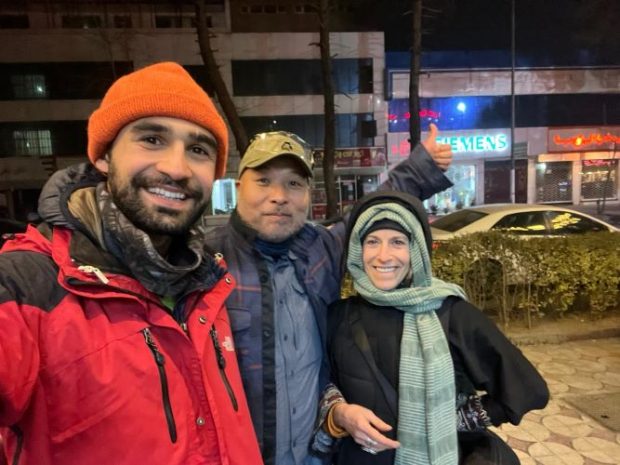
Although I was exhausted, I still went to a nearby restaurant to get some food. As I forced myself to ask for food, I heard fluent English. They were foreign tourists. Among them, Sherbin, an Iranian-American, could speak Persian as well as the local Afghan language to some extent. At that time, Sherbin also said that he was planning to head to Bamiyan, so he decided to accompany me. The next morning, while sharing information with Sherbin, I got an unexpected tip. There was no need to go through the permission process at the Ministry of Information office. That way, I visited the Ministry of Culture’s office, received permission from the authorities without much difficulty, and headed to Bamyan.
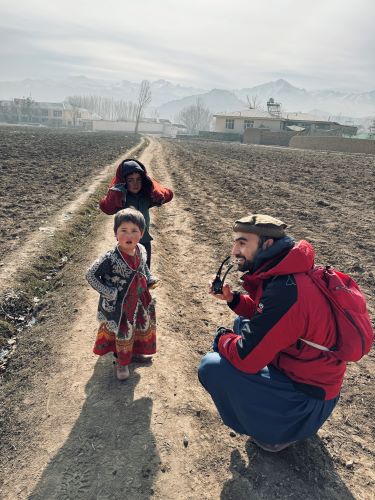
To briefly introduce Sherbin, who went with me, he was familiar with Korea as he had lived in Korea with his father, who was an executive at a multinational investment company. His appearance was similar to that of an Afghan, but he dressed like a local and easily passed the Taliban’s inspection. According to him, neighboring Iran has great influence in Afghanistan, so Iranians tend to be treated better than people from other countries. Thanks to Sherbin, I was able to complete my schedule in Bamyan much more easily than before.
Shortly after he returned from Bamiyan, he thought for a moment. Thanks to meeting his benefactor, he has been able to travel without any trouble for the past few days, but if he sets out alone, will he be able to endure the hardships he experienced last time again? His painful memories came to mind. He had been checked by the Taliban countless times, and each time the Taliban’s guns were pointed at me, it was not only stressful but traumatic.
In the border area, where people outside the bounds of the law are gathered, they are exposed to the threats and dangers of almost every crime known to mankind. I never knew when the Taliban, who were wary of the surroundings with sharp eyes, might catch a pod and take me away. So I decided. I decided to end my journey in Afghanistan here.
After making the decision, everything went smoothly. The morning after returning from Bamyan, I booked a flight to Uzbekistan, a stopover, and headed straight to the airport. Even at the airport gate, I endured the Taliban’s intense screening, thinking it was the last time. As I boarded the international flight, the Taliban I had been sick of seeing disappeared from sight, but my tension did not ease at all. The moment the plane touched down on Uzbekistan territory, I was freed from the noose that had weighed down my body and mind.
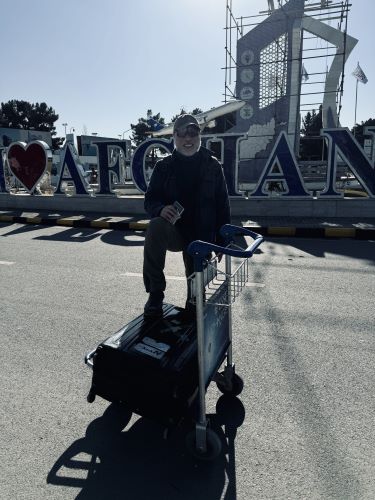
The author has visited many conflict zones and encountered difficulties big and small in most countries. It is commonly said that the more dangerous a country is, the more often foreigners are regarded as spies and detained. So, when covering conflict areas, I am very cautious about contact with people. This is because even someone passing by, such as an NGO, a refugee, or even a passerby on the street, may be watching my every move and reporting it to intelligence authorities. In particular, people who appeared to be Taliban agents were operating secretly throughout Afghanistan under the one-party dictatorship. In Afghanistan, it was common to see children begging on the streets, and they also demanded an unfair amount of money in exchange for not reporting me to the Taliban.
If the author were caught in a foreign country for the above charges, he would end up in prison for harsh words – in fact, he was detained and then released several times – but the current situation in Afghanistan was not a problem that could be solved to that extent. Let’s imagine that Afghanistan, which is in need of a single dollar, sets up a negotiation table by offering the author as a hostage. If the national treasury is invested and national power is wasted to get one author back, how can one endure the feeling of regret and shame? While in Afghanistan, I had no choice but to be more careful with my every move.
This was also the reason why I was not able to take many photos during this coverage. I didn’t want to arouse unnecessary suspicion while photographing the Taliban or surrounding facilities on the road. Because I had to submit my cell phone every time I passed through numerous checkpoints, I was unable to take photos related to security, such as government offices or military bases. I managed to save a few photos, but it was impossible to leave numerous photos intact.
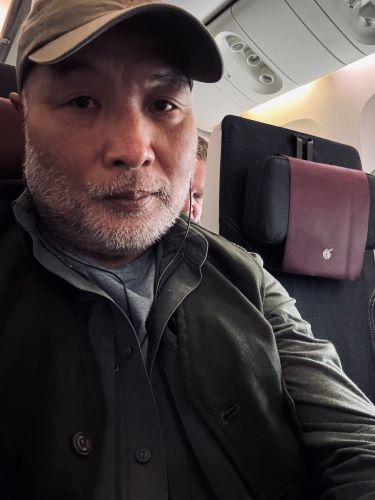
There are principles that I try to adhere to while covering conflict areas. One of them is to avoid having excessive prejudice about the country in question. In the case of Afghanistan, which is tightly closed, it is true that we received considerable help by obtaining information in advance. However, articles written with a specific tone not only cloud objective judgment but also create prejudice about the issue. I’m going there to write articles about things I’ve personally covered, not to repeat someone else’s claims.
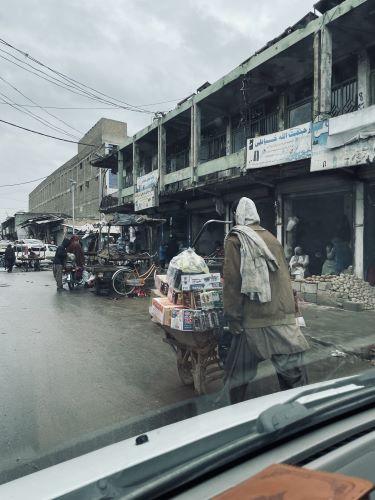
Another principle is to think and act from the perspective of the weak. Suppose you are covering a country experiencing intergroup conflict. If you stand on the side of the powerful, you will be equipped with bulletproof equipment, board a bulletproof vehicle, travel to safe areas, and be able to report with guaranteed safety. However, in most conflict-affected areas on the planet, those whose human rights are violated are almost always the weak. If an inconvenient truth exists, is it the weak or the strong who tries to cover it up?
A few years ago, the author wrote in ‘AsiaN’, “The weak in conflict areas are the weakest. “I get greater satisfaction from being able to publicize their pain,” he said. Even now, that thought remains the same.
While looking around conflict zones, I have keenly felt that there is a huge gap between what we see through Western media and what it actually is. Since the Taliban regained power from the United States in August 2021, Afghanistan has become a favorite topic of provocative news for Western media. ‘What is the real face of the Taliban, who reign over the weak in Afghanistan, located in the lowest place on earth?’ I headed to Afghanistan to see, hear, and feel for myself.
There are sunny and shaded places everywhere. It may be shaded because of the darkness, but it may also appear shaded depending on the angle from which it is viewed. Although I cannot generalize everything I experienced, the Taliban was revealing contradictions that were difficult to understand in many places.
On the other hand, it is also an undeniable fact that they are working to rebuild the country by establishing their own rules. Instead of looking at only one face of the Taliban through a distorted perspective, shouldn’t we look at the two faces as they really are?

